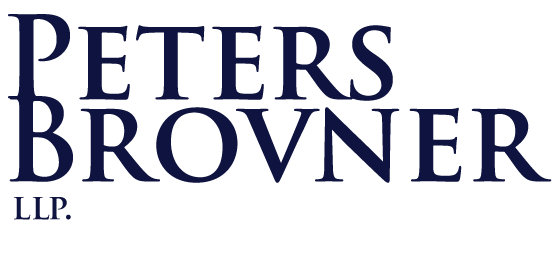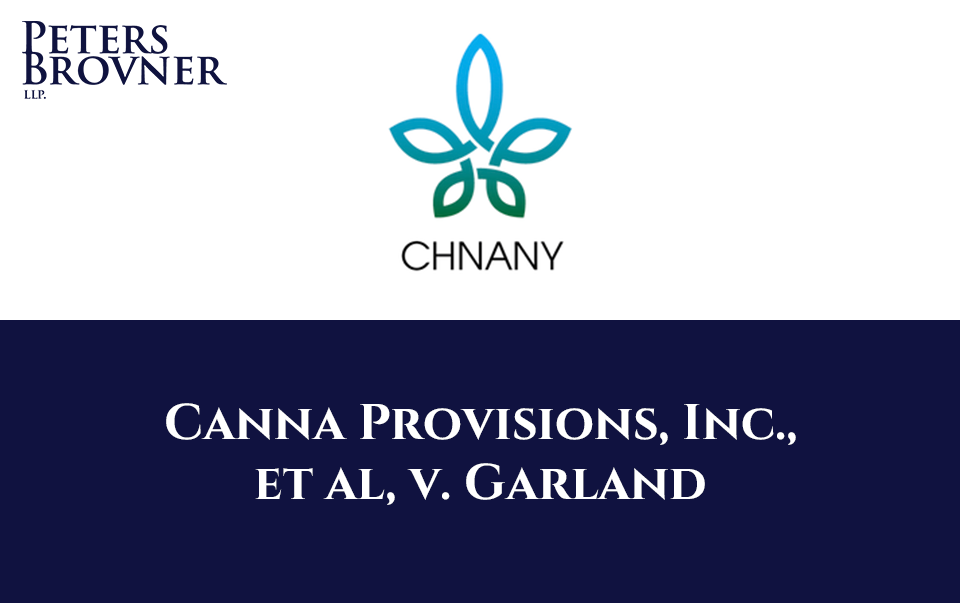Cannabis Law in New York
On March 31, 2021, the Marijuana Regulation & Taxation Act (MRTA) was signed into law. MRTA for the first time legalized recreational adult-use cannabis in New York State. The legislation created a new Office of Cannabis Management (OCM) governed by a Cannabis Control Board to comprehensively regulate adult-use, medical, and hemp cannabis. The OCM is charged with issuing cannabis licenses and developing regulations outlining how and when business can participate in this industry.
Contact Peters Brovner Today
If you are starting your own marijuana business in New York or are already active in the industry, it is necessary to have a New York regulatory attorney by your side. The industry has many challenges and legal requirements which make it difficult to navigate without help from a knowledgeable legal professional.
If you or someone you know needs legal advice, please contact the lawyers at Peters Brovner LLP for a consultation.
ph: 917-639-3270
email: info@petersbrovner.com
Agencies that regulate Cannabis businesses
- Office of Cannabis Management (OCM)– OCM is charged with overseeing the adult-use, medical, and cannabinoid hemp industries in New York, as well as establishing the regulations governing how and when a person or business may apply for and receive a license.
- The New York State Cannabis Control Board is the approval and oversight body of the Office of Cannabis Management.
- The Dormitory Authority of State of New York (DASNY) is New York State’s public finance and construction authority. DASNY finances, designs, and builds health and education infrastructure. DASNY works with the New York Cannabis Social Equity Investment Fund and the Office of Cannabis Management to build the infrastructure for parts of New York’s cannabis industry.
What is The Social Equity Investment Fund?
The Cannabis Social Equity Investment Fund is an up to $200 million Public-Private Fund, designed to provide support for justice-involved individuals who have received a Conditional Adult-Use Retail Dispensary (CAURD) license from the State Office of Cannabis Management. The Fund was seeded with $50 million in State funds, to be repaid from tax revenue generated by cannabis sales, and up to $150 million in private investment. It is the first of its kind in the nation.
What is the Social Equity Servicing Corporation (SESC) and what is their role in the emerging NYS Cannabis Industry?
The Social Equity Servicing Corporation (SESC), is a DASNY subsidiary that works with the Fund to identify, acquire, design, construct, and outfit locations for cannabis dispensaries to be operated by individuals who have received a Conditional Adult-Use Retail Dispensary (CAURD) license issued by the Office of Cannabis Management.
Cannabis Business Formation and Operation
Starting a Cannabis business has many of the same requirements as starting any other business: To start the business you will need, among other things:
- a federal tax Employer Identification Number
- incorporation papers filed with your local county or the New York Secretary of State depending on the type of entity you are creating
- insurance; and
- an application to the NYS Department of Taxation and Finance for a sales tax Certificate of Authority.
Once a legal entity has been established, you will then need to get a license to cultivate, manufacture and process or dispense cannabis. These requirements are discussed in the licensing section below.
Zoning and permitting
The first thing to do in choosing a location for a cannabis dispensary is to see if you are in a city or municipality that has “opted out” of New York’s law allowing the sale of cannabis. A not insubstantial number of cities and municipalities have opted out and so this is an important first step.
The next step is to consider the zoning and permitting rules in the location you are considering.
In New York City, for example, according to NYC Department of Buildings, when it comes to the NYC Zoning Resolution and NYC Construction Codes, cannabis dispensaries are treated the same as other retail stores. This means that cannabis dispensaries are classified as Zoning Use Group 6 (retail) and Building Code Group M (mercantile) occupancy. A few things to know in this regard:
- Choose a store location that permits retail use. Cannabis retail licensees can get help from the NYC Department of Buildings’ (DOB) Small Business Team.
- Construction of the retail store requires building permits from DOB. Refer to OCM’s regulations for other requirements.
- Hire a licensed professional to apply for all required building permits.
- Hire licensed contractors to build your store.
Licensing
In order to grow (for resale), process or sell cannabis in New York, you need a license. There are multiple types of licenses (all listed below). Licenses can only be obtained from OCM. For more information on applying for a license, click HERE.
Types of licenses available in the Cannabis industry in NYS
- Cultivator
Cultivator means any person who grows, clones, harvests, dries, cures, grades, and trims cannabis plants for the purpose of resale. A cultivator’s license authorizes the acquisition, possession, distribution, cultivation, and sale of cannabis from the licensed premises of the adult use cultivator to a licensed processor. - Adult-Use Processor
Processor means any person authorized to extract concentrated cannabis and/or compounds, blends, infuses, extracts, or otherwise manufactures concentrated cannabis or cannabis products for the purpose of resale. A processor license authorizes the acquisition, possession, processing, and sale of cannabis from the licensed premises of adult-use cultivators to licensed distributors. - Adult-Use Distributor
Distributor means any person who sells at wholesale cannabis and cannabis products for purposes of resale. A distributor’s license authorizes the acquisition, possession, distribution, and sale of cannabis products from the licensed premises of a licensed adult-use cultivator, adult-use processor, adult-use cooperative, microbusiness, or registered organization, authorized to sell adult-use cannabis to licensed retail dispensaries and on-site consumption sites. - Adult-Use Microbusiness
Microbusiness operator means any person who may act as a cannabis producer for the cultivation of cannabis, adult-use processor, distributor, and retailer. A microbusiness license authorizes the limited cultivation, processing, distribution, delivery, and sale of their own adult use cannabis products and cannabis. Microbusinesses can also become a Cannabis Event Organizer. - Adult-Use Retail Dispensary
Retail dispensary operator means any person authorized to acquire, possess, sell, and deliver cannabis products from the licensed retail dispensary premises to cannabis consumers. Retail dispensary operators can also become a Cannabis Event Organizer.
Cannabis Business Compliance
The cannabis industry is highly regulated and under great scrutiny. Therefore, it is important to get legal advice at every step along the way since violations of the multiple laws and regulations can have severe consequences including the loss of license and financial penalties.

